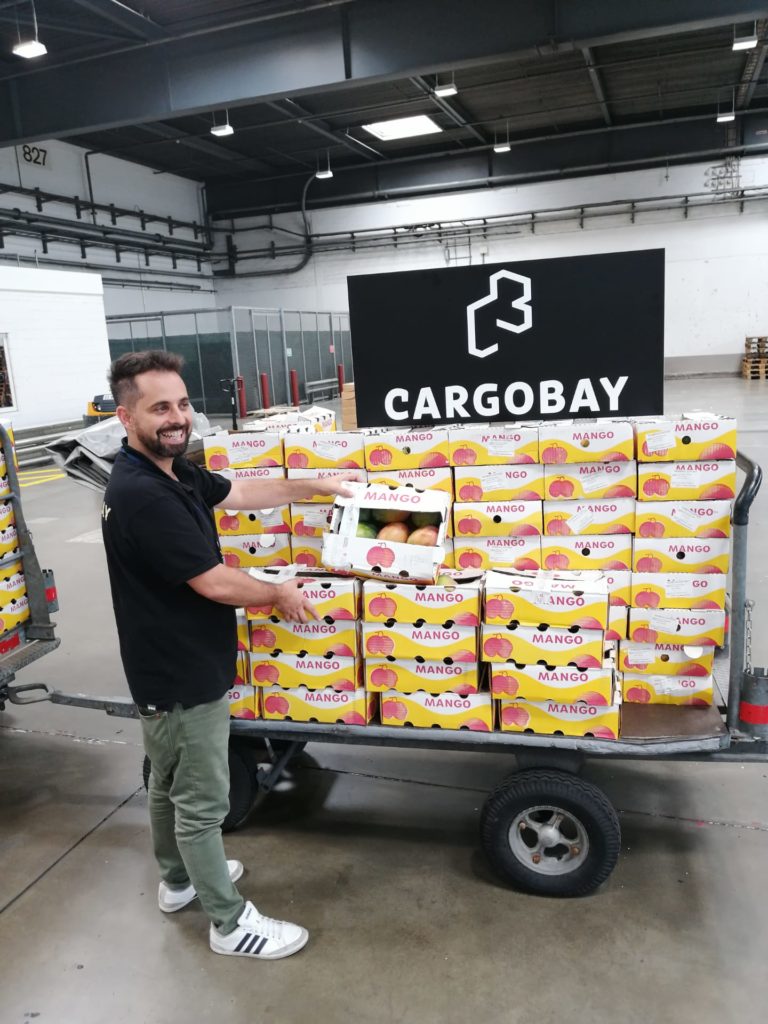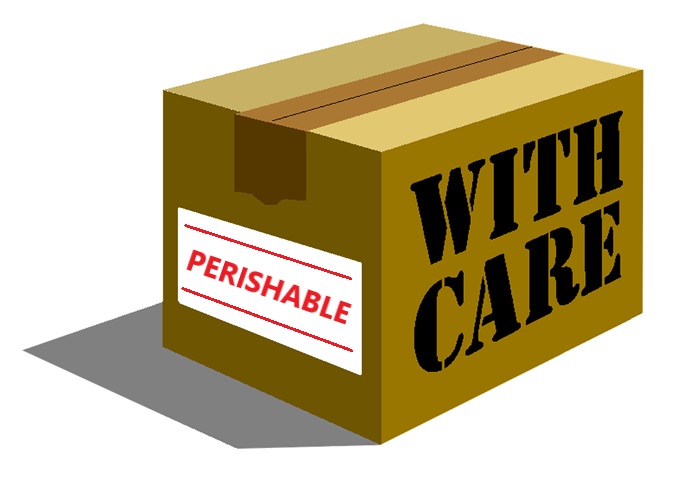Selecting the right packaging for the perishable items, using the appropriate shipping label on the package and choosing an optimum shipping service requires attention to detail
A cargo is designated as perishable by the IATA (International Air Transport Association) only when the contents of the shipments start deteriorating after a period due to exposure to environmental conditions like humidity or extreme temperatures. Generally, items such as meat, vegetables, fruits, dairy products, live fish, seafood, and plants, flowers, etc. are defined as perishable shipments. It goes without saying that shipping these items poses certain challenges and the shipper needs to ensure that the items are still fresh at the time of the delivery.

Proper packaging, insulation, and refrigerants are absolutely essential when it comes to shipping perishable items as well as chemical and medical cargoes. Data from IATA indicates that 20% of these shipments are damaged during transport due to a broken cold chain. That is why trusting in a professional and experienced freight forwarder becomes the most important issue to take into account for companies.
Cargobay, Globalia member in Zurich, and Baj Freight, Globalia member in Tema, have been handling perishable cargoes for quite some time and they have all the required expertise to handle sensitive cargo where packaging and temperature control is the key.
As the Import Manager of a company with over 9 years of experience in this field, Lucien Morel of Cargobay states, “As the name suggests, perishable products are extra sensitive. On the one hand, temperature control is key, on the other, time is also a very important factor.In the case of foodstuffs, a late delivery may result in the shipment being completely damaged. In the category of more challenging shipments, we could even include living animals like fish and marine animals.”
Reason being that these shipments need multiple legal steps as well as a tailor-made transport which needs to be done precisely. This is why the freight forwarder has to pay special attention to the shipping lines rules and regulations at the point of discharge. “Selecting the right packaging for the perishable items, using the appropriate shipping label on the package and choosing an optimum shipping service are a few of the other areas which deserve extra attention.” states Ishmael Oduro-Marfo, the Logistics Area Manager of Baj Freight and Logistics, Globalia member in Tema, Ghana, who has long years of experience in working with this Ghanian owned company which has garnered more than 12 business awards since 2014.
In addition to this, there are further challenges mainly because of the several regulations which apply to the perishable industry. Mr. Morel explains that “The various laws regarding perishable shipments are constantly updated and the forwarder handling perishable good always needs to be informed about the actual rules. For Cargobay, this means the need to be up to date with the current Swiss laws and regulations. As we handle several kinds of cargo (foodstuff, marine creatures, flowers, pharmaceuticals, etc) this is a grand spectrum to be aware of. If one procedure is not done correctly, it causes delays and even rejection of the export/import by the local authorities.”

The temperature is yet another relevant factor and some cargoes like pharmaceutical samples are very sensitive to temperature. Shippers have to keep that in mind and arrange the appropriate carriage and storage conditions for the goods. In the words of Ishmael, “Maintaining the required temperature and ensuring that the cargo remains intact isn’t as easy as it sounds. Our most complex shipment involved the handling of perishable items for a crew vessel and the task was a challenging one since we had to get the right equipment and trucks while performing proper monitoring and temperature control to ensure that the cargo doesn’t go bad.”
Mr. Morel agrees with the importance of temperature by further adding, “Nowadays keeping track of the temperature is a standard for highly sensitive products. This implies getting back the data loggers once the cargo is delivered and sending the measured information to the clients for them to check if the cargo had the correct climate settings during the whole transport.”
‘Nowadays keeping track of the temperature is a standard for highly sensitive products. This implies getting back the data loggers once the cargo is delivered and sending the measured information to the clients for them to check if the cargo had the correct climate settings during the whole transport ‘
The temperature monitoring and control are the two pivots around which the entire supply chain management of perishable cargo revolves. The advancement of RFID sensor tags has immensely helped the logistics companies to improve the monitoring of the cold chain of perishable food products. In the words of Mr Oduro-Marfo, “Perishable goods must be shipped in specialized units which have been designed with the express purpose of carrying them. Being the go-to freight forwarder of Tema, our team always makes sure to eliminate any confusion over Celsius and Fahrenheit. Keeping in mind the shipping requirements our team never fails to deliver a perishable and time-sensitive cargo to its destination on time.
| Getting perishable items with limited shelf lives to customers and patients presents complicated challenges, but safety, quality, and freshness are a common denominator. That is why managing perishable logistics requires specific expertise to maintain the cold chain, which varies from product to product. |
If you have any shipments from/to Zurich, Switzerland, or Tema, Ghana, do not hesitate to contact them!

